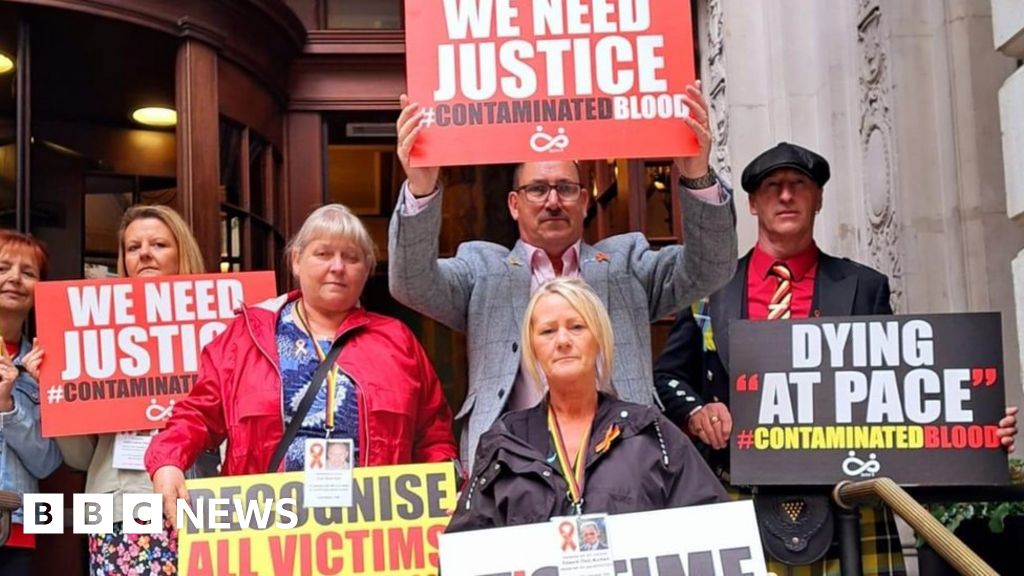- Vanessa Pierce
- BBC News, West Midlands
Jason Evans’ father Jonathan died in 1993 when he was four
The government has launched a legal challenge to a ruling over information relating to compensation for victims of the infected blood scandal.
Campaign group Factor 8 has called for some details of the scheme to be made public, a move backed by the Information Commissioner’s Office (ICO).
But the Department of Health and Social Care (DHSC) is challenging the ruling through an appeal.
The government said it could not comment on ongoing legal proceedings.
In the 1970s and 1980s, more than 3,000 people died after contracting HIV or hepatitis C through NHS treatment after being treated with contaminated blood.
The ICO’s ruling was triggered by a Freedom of Information (FOI) request for email communications from Factor 8 founder Jason Evans, whose father died after being treated with contaminated blood.
The ICO said DHSC disclosed a small amount of information but withheld the rest.
Image Source, Jason Evans
The families of the deceased have been fighting for compensation
The ICO ruled on September 1 that the government must disclose further information about interim compensation payments to victims within 35 days, but added that neither the public authority nor the complainant had accurately described the information withheld.
An investigation is underway into how thousands of patients became infected and how authorities, including the government, responded.
“Total silence”
The inquiry’s final compensation report, released in April, said the government should establish a compensation system before the final report, now due in March next year.
Mr Evans, who lives in Coventry, said it recommended interim payments be made available to all bereaved families and “neither of which has happened”.
He said the government had been “completely silent” on the matter.
“So one of the things I did was file a freedom of information request to try to get the Department of Health to understand what was going on, but they basically refused to release most of the information,” he said.
“I took it to the Information Commissioner’s Office who said I had a legal right to the information and they had to provide it.
“Now they have decided to appeal to the courts to stop them from publishing the content.”
A government spokesman said the inquiry had heard from victims and their families and would report on its findings in the coming months.
Mr Evans’ father Jonathan died in 1993 when he was just four, contracting HIV and hepatitis C at the Oxford Haemophilia Centre.
At the time, the drug was imported from the United States and was made from a pool of plasma from thousands of paying donors, including some in high-risk groups such as prisoners.
He founded the campaign group and was one of those who successfully lobbied the government for a public inquiry.
He explained that he had become a party to new legal proceedings.
“On the one hand, it’s helpful because I can give input,” he said. “But, on the other hand, should we really have to do this after all this time?”
Jason Evans (centre) is one of the campaigners who handed over a letter to Downing Street
When the prime minister told the inquiry the government would take action “as soon as possible”, he was questioned by the deceased’s family.
Mr Evans explained that Mr Sunak had raised the issue in his written introduction to this week’s King’s Speech, describing it as a “shocking tragedy and horrific failure”, but not in the speech itself.
“Being crushed again”
“I think every victim and family is very disappointed,” he said.
“Government ministers had suggested this would be the case during the inquiry.
“So this is just another example of people’s expectations being raised and then crushed again.”
“All parties acknowledge that this was wrong and needs to be corrected, but we are still faced with a complete lack of transparency and respect that we would like.”

